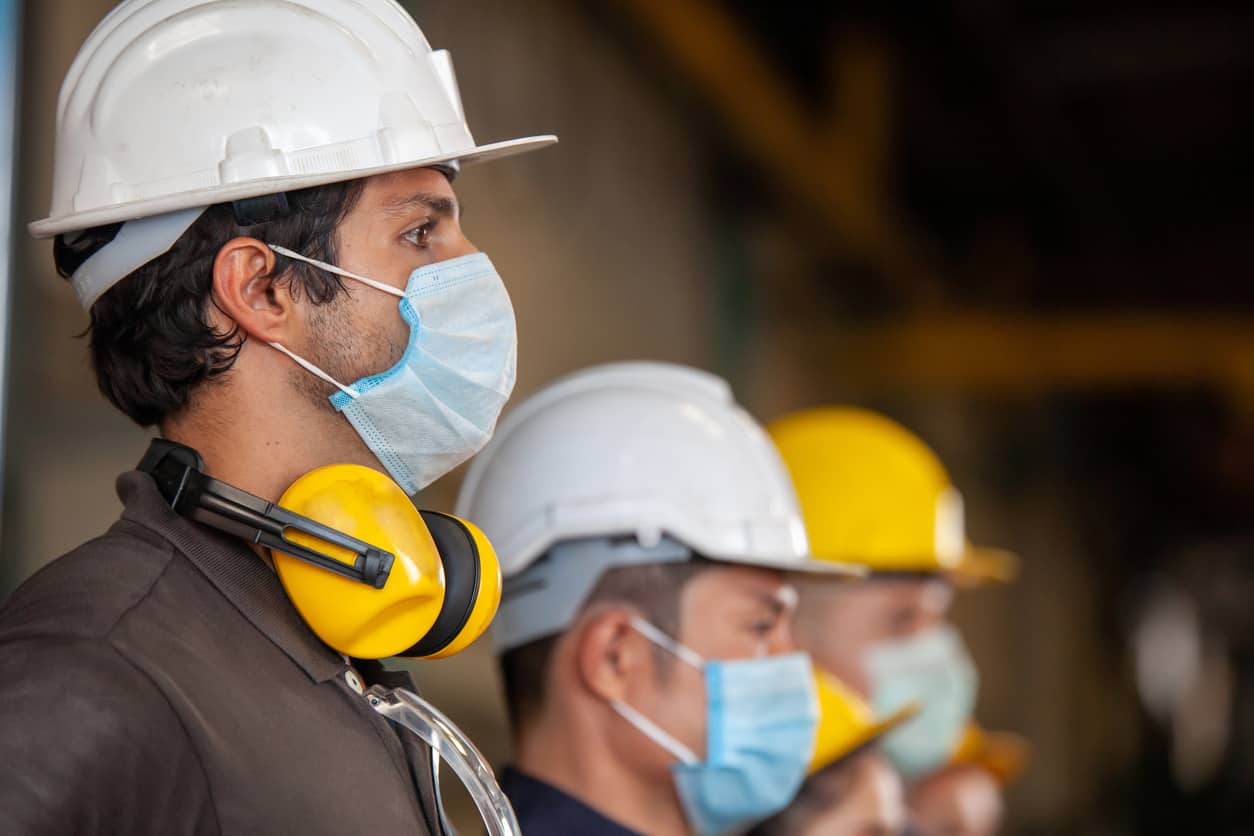
Nicholas Anway is a student at Harvard Law School.
In today’s news and commentary: auto workers at Rivian Automotive filed safety violation complaints against the electric vehicle manufacturer; members of New York’s first farm-worker union and supporters protested outside of Pindar Vinyards on Long Island; and temporary staffing agencies have ramped up lobbying efforts to stop a temp worker protection bill from passing in the New Jersey State Senate.
At least a dozen auto workers employed by Rivian Automotive Inc. filed complaints with federal regulators detailing safety violations at its Illinois production facility, Fortune reported yesterday. The complaints allege that the electric vehicle manufacturer ignored hazards and deprioritized safety resources, leaving some workers to “share respirators needed during the manufacturing process” and others to injury, “including a crushed hand, a broken foot, a sliced ear and broken ribs.” According to Fortune’s analysis, “the filings depict an automaker that cut corners as it scaled rapidly to keep pace in the competitive electric-vehicle space.” In statements to Bloomberg News, a Rivian spokesperson disputed workers’ allegations.
Members of New York’s first farm-worker union and supporters protested outside of Pindar Vinyards on Long Island over the weekend to pressure the winery’s owners to negotiate a contract, according to WSHU Public Radio. A year after the union was certified by the state to represent Pindar Vinyards farm workers, the winery’s owners are “not willing to come to the table[] and negotiate a fair contract for the worker,” said Noemi Berrera, an organizer with Local 338. “Unfortunately, they’re not negotiating in good faith,” another organizer explained. Union organizers are pushing for health insurance, better wages and benefits, and improved access to overtime. A third party could be assigned to mediate if the negotiations continue to stall.
Finally, the Gothamist reported that temporary staffing agencies operating in New Jersey have ramped up lobbying efforts to stop a temp worker protection bill from passing in the State Senate today. Staffing agencies are lobbying hard against the bill, which would ban temp agencies from making unitemized paycheck deductions that lower workers’ pay below minimum wage. The bill would also require temp agencies to compensate workers who are taken to job sites but sent home without work, to pay their workers the same as permanent employees at a work site, and to tell workers where they are going to work and how much they will be paid. “This legislation doesn’t push the envelope. These are very basic worker protections. I mean, who would ever think that wage theft needed to be legislated?” said Eric Richard, the legislative director for the New Jersey state AFL-CIO, which supports the bill. “This is another model by which . . . some employers seek to increase their bottom line on the backs of workers.”






Daily News & Commentary
Start your day with our roundup of the latest labor developments. See all
March 3
In today’s news and commentary, Texas dismantles their contracting program for minorities, NextEra settles an ERISA lawsuit, and Chipotle beats an age discrimination suit. Texas Acting Comptroller Kelly Hancock is being sued in state court for allegedly unlawfully dismantling the Historically Underutilized Business (HUB) program, a 1990s initiative signed by former Governor George W. Bush […]
March 2
Block lays off over 4,000 workers; H-1B fee data is revealed.
March 1
The NLRB officially rescinds the Biden-era standard for determining joint-employer status; the DOL proposes a rule that would rescind the Biden-era standard for determining independent contractor status; and Walmart pays $100 million for deceiving delivery drivers regarding wages and tips.
February 27
The Ninth Circuit allows Trump to dismantle certain government unions based on national security concerns; and the DOL set to focus enforcement on firms with “outsized market power.”
February 26
Workplace AI regulations proposed in Michigan; en banc D.C. Circuit hears oral argument in CFPB case; white police officers sue Philadelphia over DEI policy.
February 25
OSHA workplace inspections significantly drop in 2025; the Court denies a petition for certiorari to review a Minnesota law banning mandatory anti-union meetings at work; and the Court declines two petitions to determine whether Air Force service members should receive backpay as a result of religious challenges to the now-revoked COVID-19 vaccine mandate.